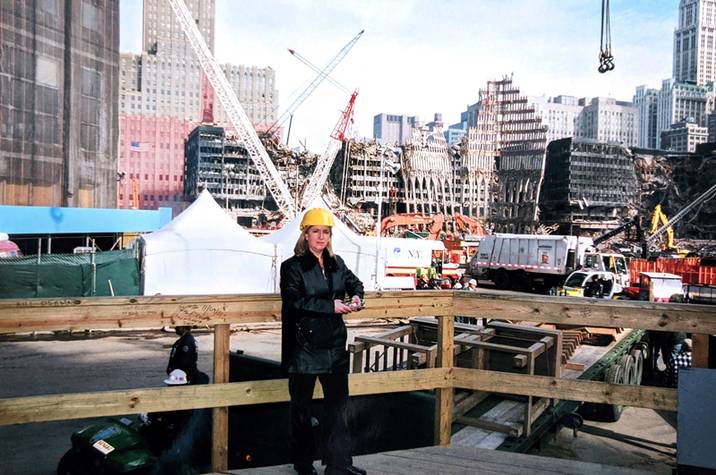RCMP photographer remembers her time at Ground Zero
By Paul Northcott

Former RCMP photographer Roxanne Ouellette was in New York several weeks after the 9/11 terrorist attack to document the cleanup and says she was moved by what she witnessed.
Image by Roxanne Ouellette
August 30, 2021
Content
This year marks the 20th anniversary of the September 11 terrorist attacks. Although they occurred in the U.S., the impact was felt around the world as flights were rerouted, security tightened and borders closed.
In remembrance, Gazette writer Paul Northcott talks to several RCMP officers and staff about their personal accounts of the horrific day and aftermath. Read Part 1 of our 4-part series below.
Two months after the 2001 terrorist attacks in New York City, an RCMP photographer found herself at the foot of the carnage at the Twin Towers – reporting on the aftermath.
"It was a privilege to be there, listening to people, and document what was going on, even if it was only two days," says Roxanne Ouellette, who was a photojournalist and editor at the Communications and Public Relations Unit at RCMP National Headquarters in Ottawa at the time.
Her memories of September, 11, 2001 begin in western Quebec where she was reporting on RCMP efforts to clear several marijuana fields.
But, as that morning's work continued, some officers were getting information on their pagers that they had to return to the nation's capital. In those days cellphones weren't functional in many rural areas.
"So, of course we didn't know the magnitude of what happened, and those who left were getting razzed about leaving us behind," says Ouellette, who left the RCMP in the fall of 2010 and now works with Public Safety Canada. The enormity of what happened, however, was confirmed later in the day when she saw news reports about the attacks.
Nearly two months later, she found herself on a plane to New York, after being invited by the New York City Police Department to write about the cleanup and recovery efforts at the twin towers.
Hours after landing on November 10, she grabbed her notepad and camera bag and walked the eight blocks, and past multiple security gates, to the site of the attacks – otherwise known as Ground Zero.
"I could smell the stench of jet fuel just a couple blocks in," says Ouellette. "I could also see wisps of dark smoke billowing toward the sky behind several untouched buildings."
Almost eight weeks after the attacks, Ouellette says fires were still burning.
"I was told that there was enough jet fuel there to keep the fires going for a few more weeks," she adds.
She says dozens of police, firefighters and other first responders ran around the site.
Walking around she saw a large chart on a wall with the names of deceased New York City police officers in blue; the names of survivors were written in green.
Looking at the wreckage, she saw workers were trying to demolish the remnants of one building with a wrecking ball, but couldn't. Engineers were debating whether or not that was the correct approach.
"These people had a job to do, and they gathered the strength to do it," says Ouellette, who remains moved by her visit to New York.
"Seeing the ruins of the World Trade Center up close was unforgettable, but seeing how New Yorkers had rallied together was simply remarkable," she says. "I didn't sense fear in New York, only steadfast determination and the strength and resilience of the human spirit."
In Pictures: Clean-up effort at Ground Zero



